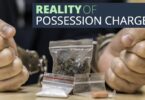You have the right to remain silent, whether you have been stopped in the street, have agreed to go to the police station or are under arrest…
Do I Have To Talk With Police?
The answer to this question is absolutely NOT!
Upon an officer’s request you should immediately give your correct name and show any requested identification. Other than that you have no obligation to talk with police. You should always be polite but also state in a clear manner that you do not want to talk without the presence of your own attorney. That is a key phrase that will invoke your constitutional rights. The vast majority of police will terminate attempts to talk to you after you make that request.
Never Explain Your Side Of The Story!
Many people who are arrested instinctively feel that if they can just explain their side of things or provide an appropriate justification for their action, they will not be arrested and charged with a drug crime. This false assumption is based on a misconception about why police officers interview (interrogate) suspects. The primary purpose of a law enforcement interview is to obtain information that may provide probable cause for an arrest or probable cause to conduct a search of the arrestee’s home or other property. In other words, the officer is hoping you will supply the necessary evidence to justify a lawful arrest and facilitate an effective prosecution.
Police Officers Are Not Your Friend!
If you don’t know it already, police officers are not your friend and will never be your friend. If you are reading this article, you are a long way from the time in elementary school where the teacher explained how police can be your friend. In any investigation, arrest, or any other type of detention – the police have one goal and only one goal: to make the arrest “stick.” They are not looking for ways to feel sorry for you. They are not looking for reasons you are a good person. There is absolutely no upside to explaining your story. But there are many, many down sides.
A common mistake made by those arrested for Ohio drug offenses is to presume that the information discussed cannot be used in a criminal trial because the arrestee has not been Mirandized. However, there is no requirement that all statements by a suspect follow a Miranda warning. Law enforcement officers are only required to issue a Miranda warning if you are “in custody.” In simple terms, this means that a reasonable person would not think that he or she is free to leave. Because you have both the constitutional right to have counsel present during questioning and to remain silent (also referred to as the “right against self-incrimination”), most Ohio criminal defense attorneys will recommend that you clearly and repeated articulate both requests.
Because a person receives the protection of Miranda rights once an individual is in custody, you might want to ask whether you are free to leave or whether you are under arrest. If the officer indicates that you can leave, you should do so and promptly contact a our office. If the officer says you are not free to leave, then you need to again articulate that you do not want to answer any questions until you have an attorney with you during the interview.
Whether you have been formally arrested and charged with a drug crime in Ohio or you are merely the subject of an investigation, the police are counting on the fact that you will forgo your right to counsel and against self-incrimination so that they can obtain valuable evidence. Officers frequently delay giving a Miranda warning until they have no choice because of concerns that a suspect will exercise these powerful rights and refuse to provide useful information.
The Only Words You Should Put in Writing…
First the short answer: Absolutely Nothing.
Never put anything in writing, never sign anything the police give to you, and don’t communicate with friends or family about anything related to a possible crime. There is a saying that just about everyone knows: “anything you say can be used against you in a court of law.” That saying should be changed to include: “anything you put in writing can be used against you in a court of law.” Texts, emails, and letters are readily admissible as evidence in court. Don’t say it and don’t write it.
What If You Are Arrested And Placed In County Jail?
Everything you discuss in person, every call you make, and every email you send is county jail recorded, catalogued, and indexed by the jail. There are vendors that specialize in assisting police and sheriff detention deputies with monitoring and analyzing inmate communications. Any admission or fact you write, speak, or email can later be used against you.
What If I Don’t Want To Be Interviewed?
Sometimes the police may tell you that you need to go to the station and make a statement on tape that you don’t want to be interviewed —you don’t have to do this. However, you may need to put in writing that you don’t want to be interviewed.
In some situations you will have to answer questions, or show the police things like identification or your licence.
If you don’t want to answer questions, and you’re not sure whether you have to, get legal advice.
Article references:
www.legalaid.qld.gov.au/Find-legal-information/Criminal-justice/Police-and-your-rights/Talking-to-the-police
www.myfloridalaw.com/criminal-defense/dont-talk-to-police-drug-arrest/







